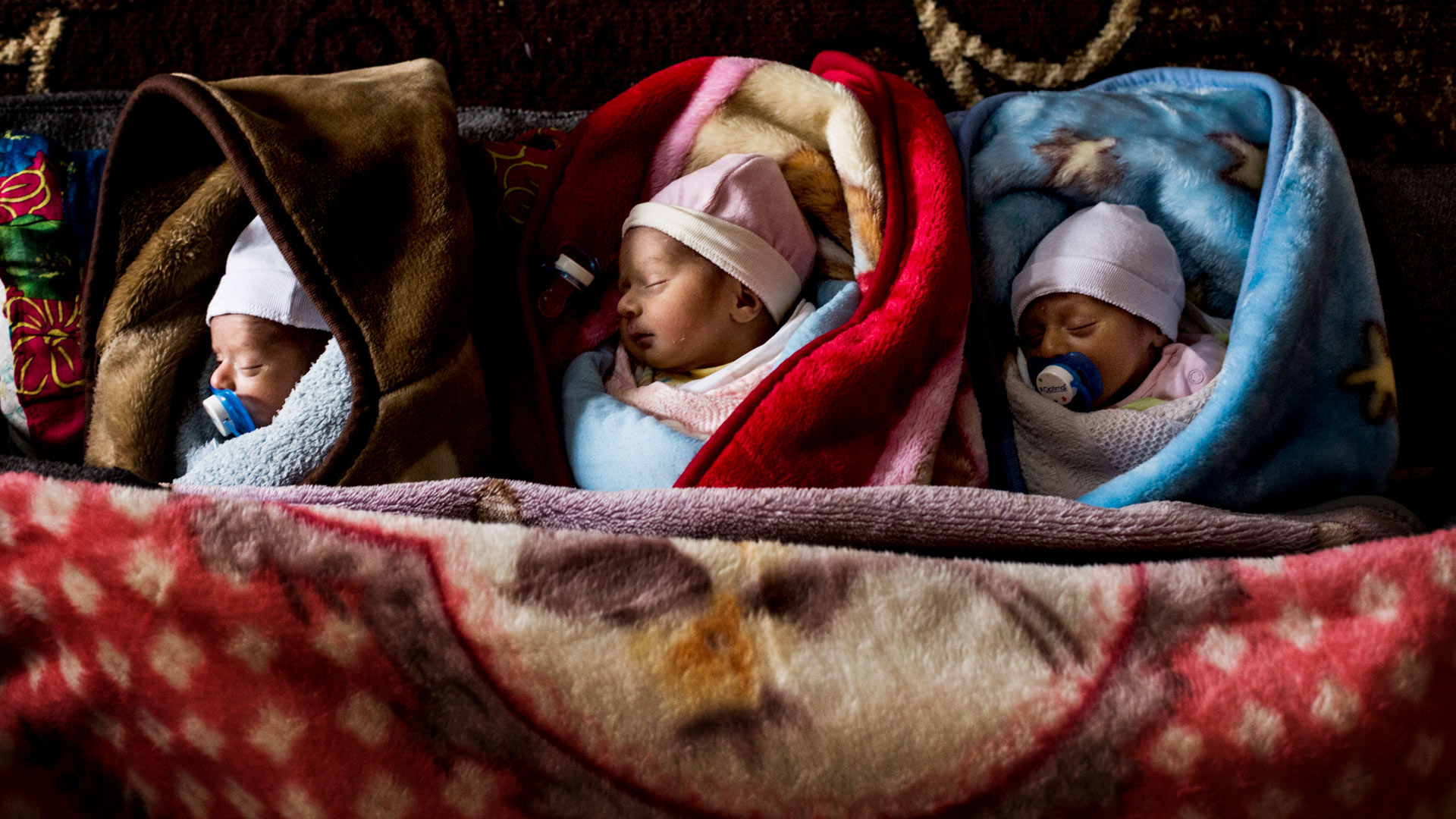UNHCR launches airlift to help Lebanese, shipments also under way
UNHCR launches airlift to help Lebanese, shipments also under way

BEIRUT, Lebanon, August 10 (UNHCR) - Severely hampered by the destruction of roads on the main supply route from the Syrian border to Beirut, UNHCR launched an airlift for Lebanon from Jordan and Europe on Thursday in an effort to rapidly deliver tonnes of urgently needed supplies.
The first flight - a Royal Jordanian Air force C-130 from Amman - touched down at Beirut's airport on Thursday morning loaded with 9,000 blankets and 192 mattresses from UNHCR's regional stockpile in Jordan, as well as boxes of drugs for the World Health Organisation.
The plane returned to the Jordanian capital carrying some 50 people who wanted to leave the country, including Jordanians, Lebanese and nationals of other countries.
A second C-130 flight, carrying mattresses, approached Beirut but was not allowed to land for security reasons and returned to Amman. UNHCR was informed that it could land on Friday morning.
"It is a great relief to have received trucks and a planeload of goods over the past days, but it is not enough," said Stephane Jaquemet, UNHCR's representative in Beirut. "Our operations continue to be seriously affected by security constraints. We need constant and secure humanitarian corridors to help the displaced and we simply do not have them right now."
Sea routes are also being used to bring in supplies in large quantities to help some of the estimated 700,000 displaced people living in schools and with host families in Lebanon.
Starting on Thursday, flights with emergency relief items from Amman and the Danish capital Copenhagen are scheduled to arrive in Larnaca, Cyprus, where 116 tonnes of supplies will be transferred to United Nations logistics ships bound for Beirut on Sunday.
The first flight, a UNHCR-chartered DC-8, is expected to depart Copenhagen Thursday night with 45 tonnes of supplies from the agency's global warehouse, including 20,000 blankets, 7,000 jerry cans, 50 plastic rolls and 1,440 kitchen sets. Two Airbus 310 flights from Amman, each loaded with 35 tonnes of tents, mattresses, jerry cans, cooking stoves and hurricane lanterns are expected to arrive in Larnaca starting Thursday night with a second flight planned on Monday.
More flights are being planned, but details are not yet available. The southern Turkish port of Mersin is also expected to be used shortly to send some 8,400 mattresses to Beirut by ship through the joint UN logistics system. Loading was under way Thursday night with sailing expected shortly.
On Friday, a French ship is expected to leave the southern port of Marseille for Beirut, carrying five Mercedes trucks which will be used by UNHCR to deliver relief supplies in Lebanon. It will also bring 30,000 blankets, 15,000 jerry cans, 100 plastic rolls and 3,000 kitchen sets. A seven-truck land convoy from Syria to Lebanon is planned for Friday.
On the ground in Lebanon, a UNHCR team on Thursday distributed 400 blankets, 460 jerry cans, 200 mattresses, 352 kitchen sets and plastic sheeting to displaced people sheltering in eight schools and public buildings in and around the village of Maaisrat, which is located in mountains north of Beirut.
"We have at least 19,000 displaced in the whole district and all the help is very much needed. We are so happy you brought us this today," said Zouhair Amro, the governor of Maaisrat village. The displaced are from southern Lebanon and southern areas of Beirut.
"I left Dahya area in southern Beirut in the beginning of the war and now my house is destroyed,"' said one of the displaced in Maaisrat, 12-year-old Fatima. "I just want peace soon and I hope I can get a new house that is just as nice as my old house," she added.
Local officials helped with the UNHCR distribution in the area. As the team was making its way back to Beirut, Israeli planes dropped leaflets warning people to evacuate heavily populated suburbs in southern Beirut, where people have been killed in previous air strikes.
Hundreds of people were later seen evacuating the suburbs of Hay el-Soulom, Bourj Al-Barajneh and Chiyah, clutching a few belongings. Displacement from these areas will add to the massive problems in Lebanon.
By Astrid van Genderen Stort in Beirut, Lebanon








